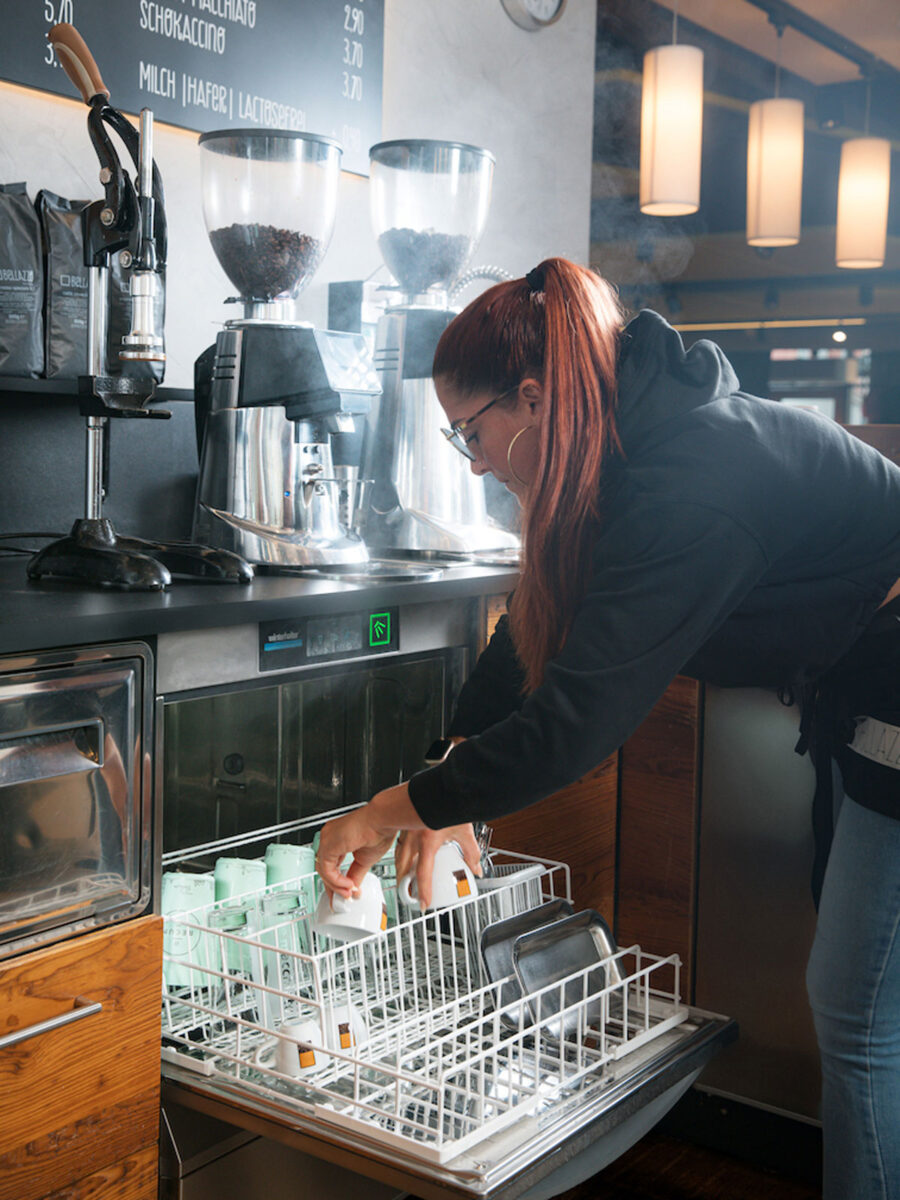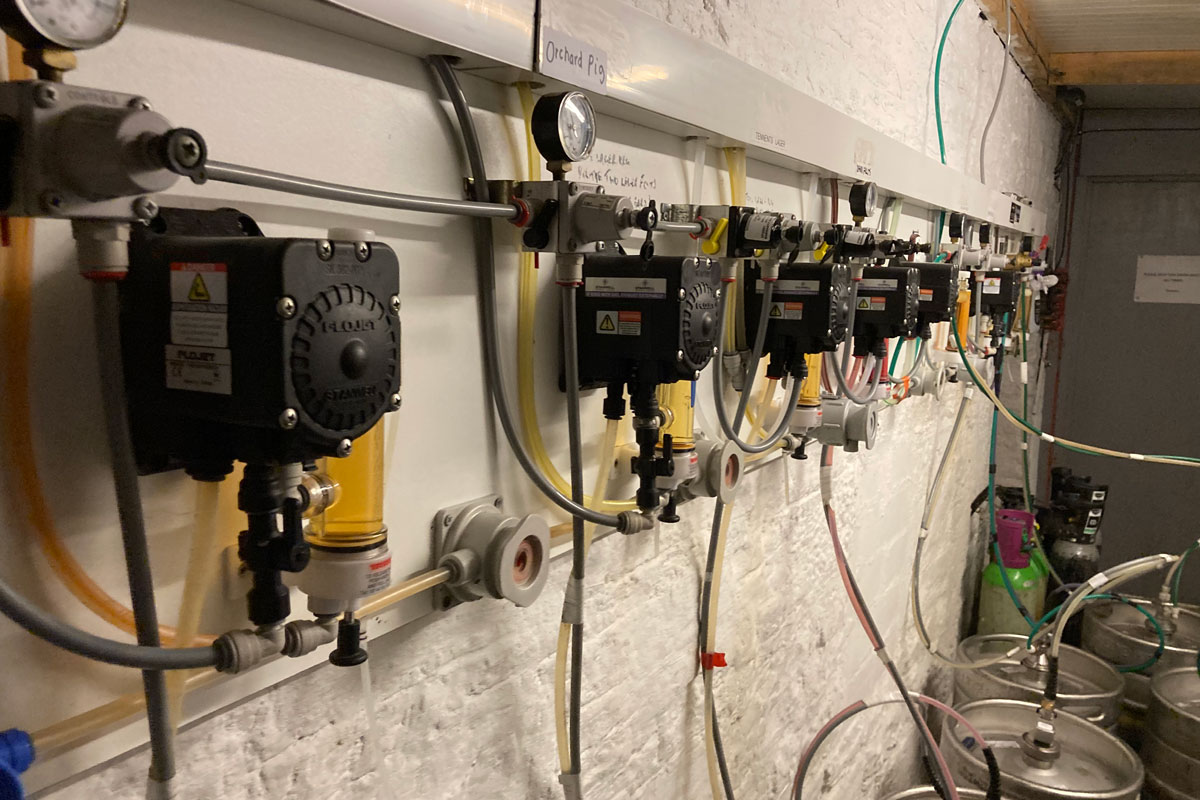
Behind the bar – the area(s) the customer doesn’t see, but which play such a crucial role in the experience of every visit to a venue.
And with customers looking to be as fussy as ever in 2025 those behind the scenes areas – whether it’s the back-bar, the kitchen or the cellar – could be more important than ever to a successful venue.
“With household budgets under pressure, people are going out less often, so when they do, they expect a higher quality experience,” said Dan Kershaw of dispense specialist Brewfitt.
“Serving the best possible product is crucial to meeting these expectations — poor quality can discourage repeat visits and harm a venue’s reputation.
“Delivering consistent quality justifies the premium prices customers are paying, making them feel their money is well spent.

“In this environment, ensuring every drink is exceptional is key to retaining loyalty and attracting positive word of mouth.”
Well organised spaces behind the bar can help make a real difference to a venue’s efficiency, said Kershaw.
“Back-bar areas can be filled with shelf coolers and other equipment that not only reduces the operating space but makes the environment uncomfortable and warm for staff. Removing these coolers and replacing with a cellar based solution frees up space and reduces energy consumption.”
Obviously there are several pieces of kit that won’t be moved from the back-bar area, though, and in these cases there are steps operators and staff can take to ensure things are running smoothly.
Malcolm Harling of Williams Refrigeration said there are several steps operators should consider to maintain their back-bar fridges.
These include checking the ventilation, as units will have to work harder to maintain their temperature if they get too warm; making sure vents aren’t blocked; and checking and regularly cleaning gaskets and door seals as well as cleaning the fridge’s condenser coils four times a year.
Staff should also be told not to overload the fridge, as this can block airflow and cause the system to have to work harder.
“Ask your service provider for training if necessary or visit the downloads area of the Williams website and check out the ‘Prolonging the life of your cabinet’ guide, for advice on how to clean the condenser as well as lots of other useful information,” advised Harling.
The glasswasher is obviously another essential piece of kit, and Paul Crowley of Winterhalter UK said it’s important venues have the right equipment in place.

“If a machine breaks down or has insufficient capacity then the supply of clean glasses will not keep up with demand and service will be unable to continue,” he said.
“So don’t go for the cheapest option when sourcing a glasswasher, look at reliability, after-sales service and availability of spare parts.
“To minimise mistakes choose a glasswasher that is easy to operate. Many have single button controls – and training may only take a few minutes.
“If the machine has self-diagnostics and warning sounds or symbols don’t ignore them. They have been designed to ensure the smooth running of the equipment.”
Further into the back-of-house, the cellar is of paramount importance for the quality of any draught products.
Ross McCardel of dispense gas supplier Abergas said a clean and tidy cellar ‘sets the tone for the rest of the premises and as a supplier it is easy to identify the well managed outlets in this respect’.
“Basic factors like ensuring clear access and egress routes for deliveries are maintained show suppliers the right message and also mean that staff are not put in harm’s way by lifting heavy cylinders over kegs, potential trip hazards if cylinders are not chained up properly etc.”

To ensure best quality, regular line cleaning is essential, said McCardel.
“One full line per week is a good pattern to stick to for publicans and helps provide the best quality product to the consumer,” he said.
“Trying to cut back or take shortcuts can mean a lesser standard of end product, possibly limiting chances of repeat business.”
And while this advice isn’t new, it’s definitely worth repeating.
Particularly as, according to McCardel, standards in some Scottish venues have been slipping in recent years.
He said: “Scotland as a whole has probably gone backwards over the past decade if anything as there are more short-term tenancies than ever.
“Good cellar management and training does still exist but overall I am sorry to say that cellar maintenance is on a downward trend in line with our sector.”



















